Eicke Latz
Bonn, Germany
Eicke Latz studied medicine in Göttingen and Berlin and worked as an intensive care physician at the Charité Hospital in Berlin. Starting in 2000, he received post-doctoral training at Boston University and UMass Medical School, joining the UMass faculty in 2006. In 2010, he returned to Germany and founded the Institute of Innate Immunity at the University of Bonn.
Eicke has co-founded IFM Therapeutics, DiosCure Therapeutics, and a ‘Stealth’ biotech that translate discoveries into novel therapeutics. He has been a highly cited scientist in immunology yearly since 2014, and he has received prestigious awards, such as the Gottfried Wilhelm Leibniz Prize in 2018.
Monday 23 May
Vascular response in atherosclerosis: From epigenetics to bone marrow
-
Alberico Catapano
Alberico Catapano
Milan, ItalyFull Professor of Pharmacology, Director of the Center of Epidemiology and Preventive Pharmacology (SEFAP) as well as Director of the Laboratory of Lipoproteins, Immunity and Atherosclerosis at the University of Milan (Department of Pharmacological and Biomolecular
Sciences) and PhD coordinator from 2017 to 2020.
Moreover he is Director of the Center for the Study, Prevention and Therapy of Atherosclerosis of the University of Milan, at the Bassini Hospital, Head of Cardiovascular Research Line at Multimedica IRCCS Sesto San Giovanni (Mi), President of the Italian Society of Clinical and Sperimental Therapy (SITeCS) and General Director of the SISA Foundation
His main research, from 1972, interests include the study of atherosclerosis, lipids, lipoproteins and genetic dyslipidaemias, and he has made landmark observations regarding heat shock proteins and pentraxins in atherogenesis, on high-density lipoproteins in the modulation of the immune response, and on the identification of possible therapeutic targets by exploiting genetic information. Past President of the European Atherosclerosis Society (EAS), Professor Catapano is currently Co- Chairman of the EAS/European Society of Cardiology (ESC) guidelines for the treatment of dyslipoproteinaemias. Editor of Atherosclerosis Supplements, Co-editor of Atherosclerosis and Associate Editor of other scientific journals, he has authored more than 590 scientific papers in peer-reviewed journals (I.F. 10.929) and is among the highly cited scientists in 2019, 2020 and 2021 according to Clarivate -
Kausik Ray
Kausik Ray
London, United KingdomKausik Ray is currently Professor of Public Health, Deputy Director of Imperial Clinical Trials Unit and Head of Commercial Trials within the Department of Public Health and Primary Care, School of Public Health, Imperial College London, Consultant Cardiologist and Chief Clinical Officer and Head of Trials –Discover Now as well as NIHR ARC National Lead of Cardiovascular Disease. Professor Ray received his medical education (MB ChB, 1991) at the University of Birmingham Medical School, his MD (2004) at the University of Sheffield, a post-doctoral fellowship at Harvard Medical School and finally an MPhil in epidemiology (2007) from the University of Cambridge.
A Fellow of the American College of Cardiology, the European Society of Cardiology, the American Heart Association and the Royal College of Physicians, Kausik Ray is also a member of the British Cardiovascular Society and President of the European Atherosclerosis Society, also serving on the EAS Consensus panel and EAS Executive Committee. Professor Ray has either been the National Lead Investigator, Principal Investigator, or served on committees for several major medical trials, as well as international registries and is currently involved in 8 ongoing trials in lipids and diabetes and the PI for ORION 1, 3, 11 assessing PCSK9 inhibition through RNA interference and BETONMACE assessing BET protein inhibition in patients with ACS.
Professor Ray’s research interests have focused on the prevention of coronary disease with a focus on lipids, diabetes, biomarkers and risk prediction. He has an H index of 87, an i10 of 220 and over 92,000 citations for his work in journals such as New England Journal of Medicine, The Lancet, JAMA, European Heart Journal, Circulation and JACC. He has also been included in the Clarivate Analytics’ list of the top 1% most cited authors in all of global medicine in 2018, 2019 and 2020. Key original contributions which have influenced European and American guidelines include demonstrating the early benefits of statin therapy post ACS, the impact of more/less intensive glycaemic control on CVD and the risks/benefits of aspirin therapy in primary prevention. Recently, his work on statins and diabetes risk led to a global label change for statins by the FDA and EMEA. Currently Professor Ray leads the EAS FH Studies collaboration which is the first global registry of FH which includes 70 countries and 62,000 cases, as well as being the Senior PI for the TOGETHER study looking at cardiometabolic risk in the vascular health checks in 250,000 people in London.
Epigenetic control is one of the most fundamental regulatory systems within the cell. Although different cells contain the same genetic material, they have different epigenomic signatures, which may be heritable or temporary, caused by dynamic responses to the environment thereby providing a link between phenotypic profile and disease risk. Epigenetic modifications, such as DNA methylation and post-translational histone processing, have emerged as important regulators of key signalling pathways that alter monocyte/macrophage phenotypes in response to environmental stimuli, and thus important factors in the pathogenesis of atherosclerosis. In contrast to adaptive immune responses, epigenetic reprogramming of transcriptional pathways mediates trained immunity, involving enhanced responsiveness to subsequent triggers. This process is likely to confer detrimental outcomes in the context of chronic inflammatory diseases, such as atherosclerosis.
Atherosclerotic plaque formation is a dynamic multi-cellular process in which the activity of the different cell types involved is essentially determined by the regulation of different genes. Epigenetic factors modulate vascular smooth muscle cell phenotype to either promote or prevent arterial remodelling. These insights have led to suggestions that atherosclerosis is an epigenetic disorder rather than a ‘lipid’, ‘metabolic’, and ‘inflammatory’ disorder. The ongoing challenge is to understand how the mechanisms of epigenetic regulation, including those mediated by intragenic epigenetic modifications and long coding RNAs, promote vascular disease. Finally, the reversibility of epigenetic modifications may suggest future potential for identifying novel therapeutic targets for atherosclerosis.
Key references
Budden CF, Gearing LJ, Kaiser R, Standke L, Hertzog PJ, Latz E. Inflammasome-induced extracellular vesicles harbour distinct RNA signatures and alter bystander macrophage responses. J Extracell Vesicles 2021;10(10):e12127.
Latz E. The inflammasome: from bench to bedside. Nat Rev Immunol 2021;21:622-623.
Divangahi M, Aaby P, Khader SA, Barreiro LB, Bekkering S, Chavakis T, van Crevel R, Curtis N, DiNardo AR, Dominguez-Andres J, Duivenvoorden R, Fanucchi S, Fayad Z, Fuchs E, Hamon M, Jeffrey KL, Khan N, Joosten LAB, Kaufmann E, Latz E, Matarese G, van der Meer JWM, Mhlanga M, Moorlag SJCFM, Mulder WJM, Naik S, Novakovic B, O’Neill L, Ochando J, Ozato K, Riksen NP, Sauerwein R, Sherwood ER, Schlitzer A, Schultze JL, Sieweke MH, Benn CS, Stunnenberg H, Sun J, van de Veerdonk FL, Weis S, Williams DL, Xavier R, Netea MG. Trained immunity, tolerance, priming and differentiation: distinct immunological processes. Nat Immunol 2021;22:2-6

